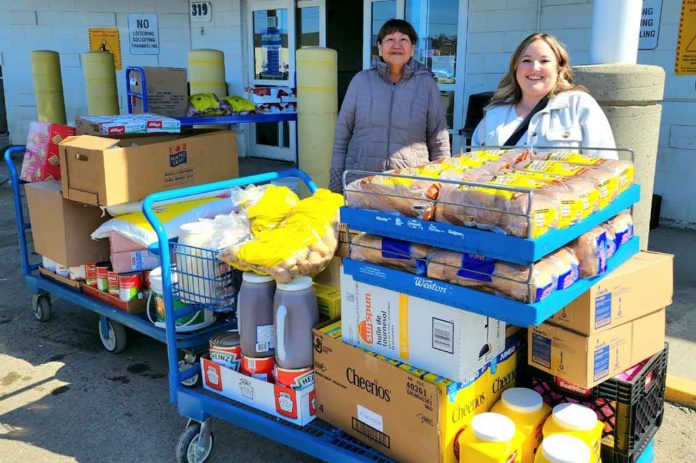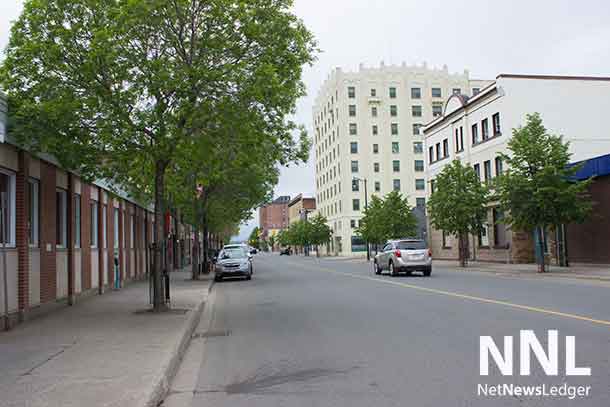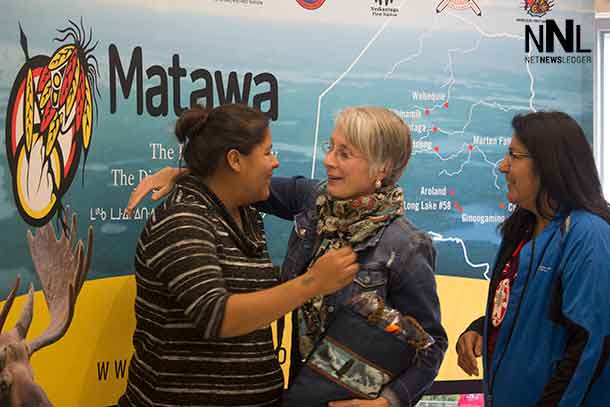THUNDER BAY – NEWS – President Rosemary Moonias, on behalf of the Matawa First Nations Management (MFNM) Board of Directors, today announced an investment of $20,000 to Shelter House Thunder Bay (SH-TB). MFNM provided the investment as an emergency interim measure to assist in the prevention of reduced services that SH-TB is currently considering.
Moonias also called for action to address emergency shelter funding, staffing and food shortage challenges currently experienced by SH-TB. On March 23, 2023, an additional $202 million per year to address homelessness prevention and Indigenous supportive housing in the 2023-2024 Ontario budget was announced. As of this date, there have been no details provided on how these additional investments will be allocated. If an opportunity becomes available for input into decision making on this funding—MFNM is prepared to support SH-TB, Matawa First Nations Management Non-Profit Housing and other projects in northern Ontario that are supporting the most vulnerable people in Thunder Bay and the Matawa region.
Out of an estimated 75 organizations/services for emergency shelter and housing that exist in the province—SH-TB and the Salvation Army’s Journey to Life Centre are the only 2 that exist in northern Ontario. In essence, southern Ontario has 98% of these services and northern Ontario has 2%. It is not known how southern Ontario organizations/services are faring with respect to being able to provide services in comparison to northern emergency organizations/services given they are funded differently (northern emergency shelters in Ontario, for the most part, receive funding from District Social Service Administration Boards).
Over the past number of years (and exacerbated by the COVID-19 pandemic over the past 3 years), SH-TB has been affected by a staffing and funding crisis that has hit emergency shelters worldwide, some of the challenges they are currently experiencing include:
• inability to recruit new staff;
• higher than normal staff turnover due to low wages and inability to incentivize them;
• higher rates of staff burnout;
• drops in funding and inability to secure meaningful resources to deliver programming as a non-profit organization (for SH-TB, they were forced to discontinue the previously operated Street Outreach Services van in September 2022
SH-TB is presently working to strengthen the organization and are working to re-establish themselves as a community leader in the field. They are seeking community partners to stand together to strategize on how they might work together to achieve this task. On May 23, 2018, MFNM made a first substantial investment in support of the previously operated SH-TB Street Outreach Services (SOS) van which lots the ability to operate due to drops in funding. Over the past number of months, various Matawa programs like the Matawa
Chiefs Council, Awashishewiigiihiwaywiin and Matawa Education have provided food supports in the amount of over $16K. On March 31, 2023, the Matawa Health Co-operative donated $2K worth of food for SH-TB’s immediate food needs







